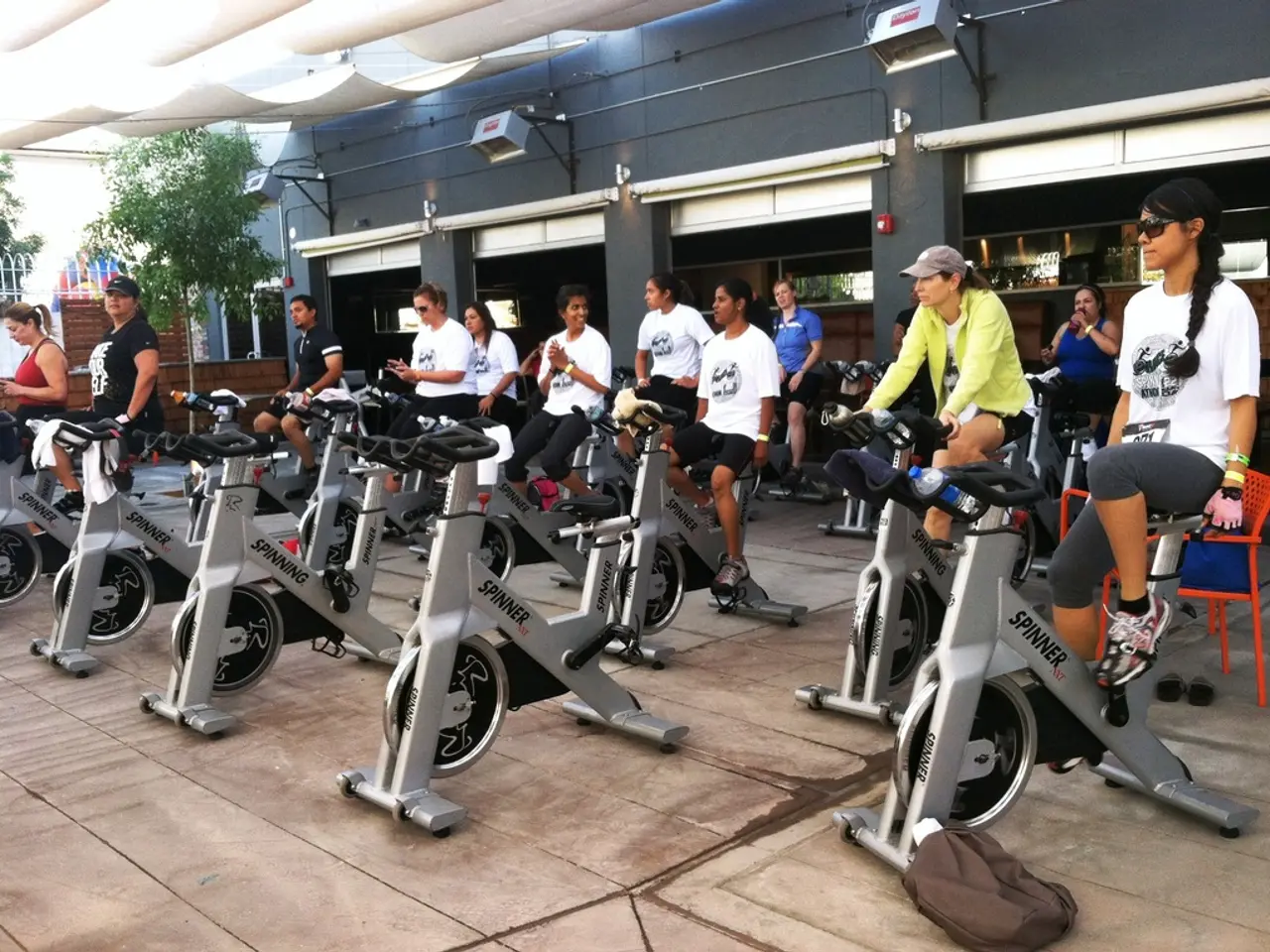Non-Exercise Heart and Metabolism Enhancement through 50p Supplement: Experience Exercise-Like Benefits without Physical Activity
In a groundbreaking study published in the prestigious journal *Cell* in 2025, researchers from the Chinese Academy of Sciences and Xuanwu Hospital Capital Medical University have uncovered compelling evidence suggesting that the supplement betaine could mimic some of the benefits of exercise, particularly in relation to heart health, metabolism, immune system, brain function, and ageing.
The key findings from the research indicate that long-term exercise significantly increases betaine levels in the body, unlike acute exercise which causes transient inflammation. Elevated betaine levels have been correlated with decreased inflammatory markers, suggesting betaine's potential in countering inflammation – a recognized driver of aging and chronic diseases.
Betaine's mechanism of action involves its direct binding and inhibition of TANK-binding kinase 1 (TBK1), a protein that promotes inflammation and cellular aging. By inhibiting TBK1, betaine reduces activation of inflammatory pathways, lowering chronic "inflammaging".
The study demonstrated that supplementing betaine in aged mice led to improved muscle strength, reduced tissue fibrosis, fewer markers of cellular senescence, rejuvenated immune cells, better metabolic profiles, improved physical coordination and memory, and even alleviation of depressive-like behaviors – all without exercise.
While the research is promising, it is important to note that betaine supplements have not yet been tested extensively for safety and efficacy in humans. Clinical trials are needed to confirm these effects outside animal models. Furthermore, betaine cannot replace all diverse benefits of physical exercise, which involves multiple complex physiological adaptations beyond those mediated by this single molecule.
In summary, the study provides molecular and functional evidence that betaine mimics some exercise-induced benefits by reducing inflammation, improving metabolism, rejuvenating immune function, and slowing aging processes, particularly demonstrated in mice models. However, translation to human supplementation requires further clinical validation.
For those who find it difficult to exercise, betaine supplements could potentially offer an alternative route to some of the health benefits associated with regular exercise. Betaine is found in foods like beets, spinach, and whole grains, and is also sold as a supplement at affordable prices, costing as little as £14.99, amounting to less than 50p per capsule.
However, it is crucial to consult with a healthcare provider before starting any new supplement regimen, especially one that may have potential implications for health and wellbeing. The NHS recommends adults (aged 19 to 64) to aim for 150 minutes of "moderate intensity activity" a week, which can be 21 minutes a day or 30 minutes five days a week, and also to do strength exercises twice a week. The optimal time of day for exercise might differ according to individual circumstances, with some studies suggesting that early-bird gym goers may see better weight loss results than those working out later in the day.
- The groundbreaking study in the journal Cell in 2025 suggests that betaine supplements, sourced from foods like beets, spinach, and whole grains, could offer an alternative route to some health benefits associated with regular exercise, particularly those related to heart health, metabolism, immune system, brain function, and aging, as betaine can mimic some of the benefits of exercise by reducing inflammation and slowing aging processes.
- Despite the promising findings, it's essential to remember that while betaine supplements can potentially enhance health-and-wellness, they should not replace fitness-and-exercise, which involve multiple complex physiological adaptations beyond those mediated by this single molecule. Therefore, it's always advisable to consult with a healthcare provider before starting any new supplement regimen and follow the NHS's recommendations for moderate exercise and strength training.








